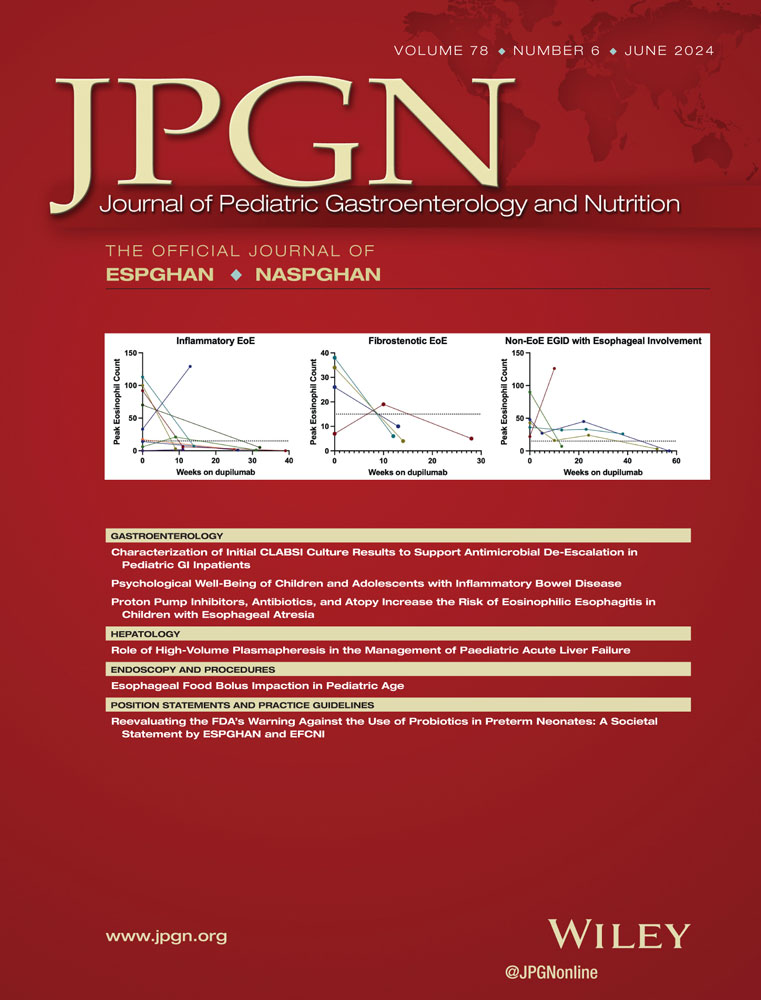Formula modifications to the Crohn's disease exclusion diet do not impact therapy success in paediatric Crohn's disease
Abstract
Objectives
The Crohn's disease exclusion diet (CDED) + partial enteral nutrition (PEN) is an emerging diet used to induce clinical remission in children with active Crohn's disease (CD). This study aims to determine the effectiveness of using the CDED+PEN to induce clinical remission in an Australian group of children with active CD using different PEN formulas and incorporating patient dietary requirements.
Methods
We retrospectively collected data from children (both newly diagnosed and with existing CD while on therapy) with active CD (Paediatric Crohn's Disease Activity Index [PCDAI] ≥10) and biochemical evidence of active disease (elevated C-reactive protein [CRP], erythrocyte sedimentation rate [ESR] or faecal calprotectin [FC]) who completed at least phase 1 (6 weeks) of the CDED+PEN to induce clinical remission. Data were collected at baseline, Week 6 and Week 12. The primary endpoint was clinical remission at Week 6 defined as PCDAI < 10.
Results
Twenty-four children were included in phase 1 analysis (mean age 13.8 ± 3.2 years). Clinical remission at Week 6 was achieved in 17/24 (70.8%) patients. Mean PCDAI, CRP, ESR and FC decreased significantly after 6 weeks (p < 0.05). Formula type (cow's milk based, rice based, soy based) did not affect treatment efficacy. A greater than 50% decrease in FC was achieved in 14/21 (66.7%) patients who completed phase 1 and 12/14 (85.7%) patients who completed phase 2 of the CDED+PEN.
Conclusions
Formula modifications to the CDED+PEN do not impact the expected treatment efficacy in Australian children with active luminal CD.
CONFLICT OF INTEREST STATEMENT
The authors declare no conflict of interest.
Open Research
DATA AVAILABILITY STATEMENT
The data that support the findings of this study are available from the corresponding author (E. L.) upon reasonable request.




